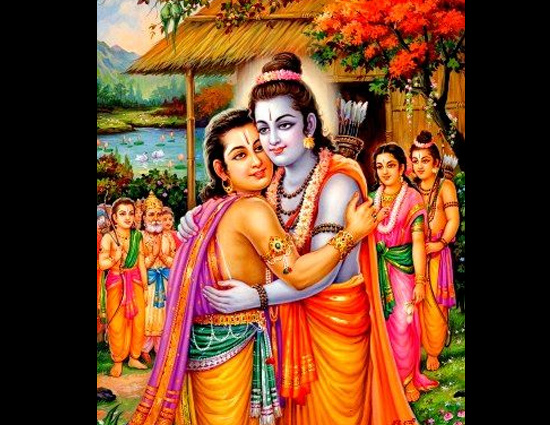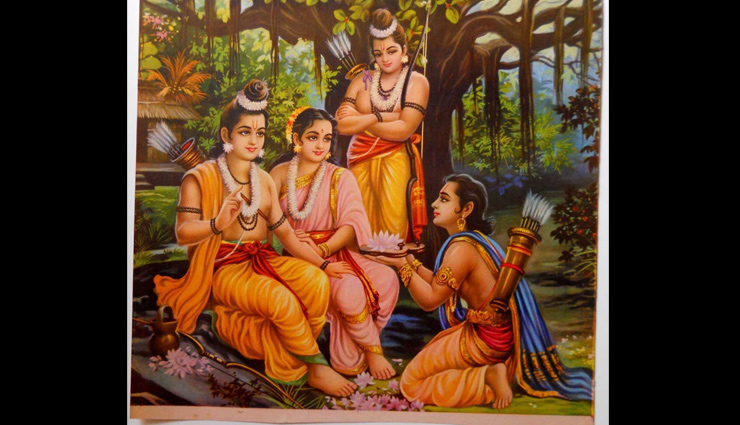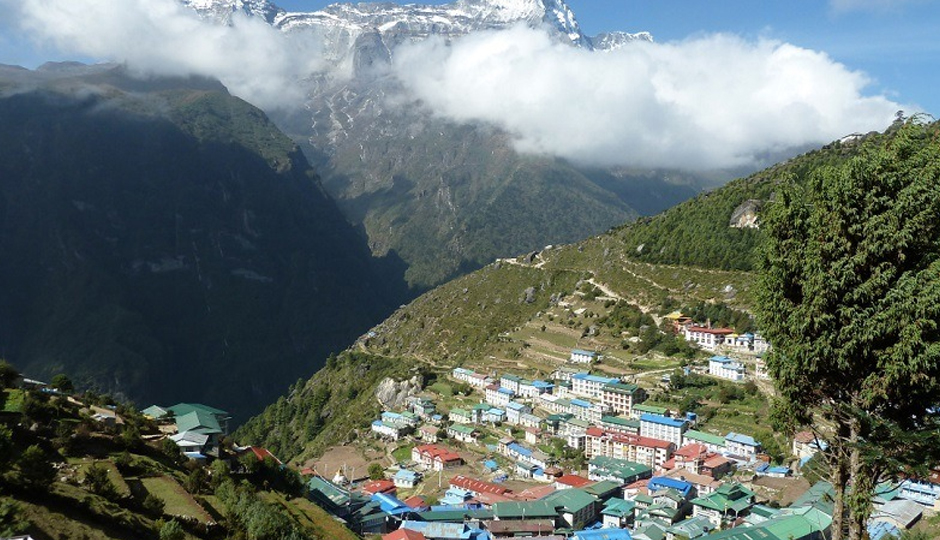Story Of Bharat, The Symbol Of Dharma And Idealism
By: Kratika Maheshwari Tue, 17 Oct 2017 1:35:16

Bharata also known as Bharat was the second of the four sons of King Dasharatha. It is stated that after Rama, he was the symbol of dharma and idealism. According to Valmiki Ramayana, he is considered to be born in the aspect of the Sudarshana Chakra, the most popular of Vishnu’s Panchayudhas.
Birth of Bharata in Ramayana
Bharata was the second of the 4 sons of Dasaratha the emperor of Ayodhya. His mother was Kaikeyi, the daughter of Kekeya Kingdom. The Ramayana portrays the four brothers as loving and committed to one another. He was born on the day following that on which Rama was born at the auspicious hour of the confluence of the moon’s mansion Pushy a with the zodiacal sign Pisces.
He was the husband of Mandavi, daughter of King Janaka’s brother Kushadhvaja and thus a cousin of Sita, who was wife of Rama. They had two sons, Taksha and Pushkal. The spiritual guru Vashishtha at the naming ceremony claims that Bharata is the incarnation (avatar) of the power responsible for feeding and nourishing the entire world.

King Of Ayodhya
Bharat was away from Ayodhya when Rama went into exile. When he learned of the exile, he was shocked. He was angered at the idea that he should take Ayodhya’s throne.. He seriously punished his mother, and right away declared his intention of bringing Rama back from the forests, and if need be, of serving out his exile for him.
After giving the unpleasant news of their father’s demise to Rama and Lakshmana, Bharata argued with Rama to return to Ayodhya as emperor, but the latter declined on the grounds that such a deed would be unrighteous.
He gave up his efforts to take Rama back to Ayodhya before the fourteen year exile elapsed. Though heavily disappointed, he came back to Ayodhya after receiving a promise from Rama that he would return after the 14 years of exile and ascend the throne. He promised to Rama that if he did not return immediately when the 14 years elapsed he would give his life up by immolation.
He agreed to govern Ayodhya, not as its ruler, but as Ram’s representative. The folks supported Bharata, as he became the ‘king’ of Kosala and Ayodhya, but he himself placed Ram’s sandals at the foot of the royal throne, and neither sat upon the throne nor crowned himself.
Bharata’s reign was righteous, and the kingdom was safe and prosperous, but he continuously longed for Rama’s return. During this period he failed to forgive his mother Kaikeyi, and faithfully served Kousalya, Ram’s mother, and Sumitra, Lakshman’s mother.
Return of Rama and Retirement
When the exile elapsed, Rama had just vanquished Ravan, the demon king of Lanka. Recalling Bharat’s vow, an anxious and worried Rama sent Hanuman ahead of himself to stop Bharat from sacrificing his life.
Upon Ram’s return to Ayodhya, he led the procession to greet the rightful king and queen, and his brother Lakshmana.
Although Ram intended to crown Lakshman the Yuvaraja, or Crown Prince following his own coronation, Lakshman remarked that Bharat’s excellent virtues and years of expertise as Ayodhya’s administrator qualified him better, and therefore he was right away made Yuvaraja by Rama.
When Rama made a decision to retire, Bharata and Shatrughna joined him. When Ram walked into the river Sarayu, he changed into his eternal and original Mahavishnu form both the brothers also walked into the river and united with him.





